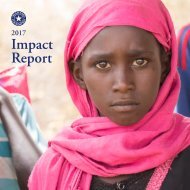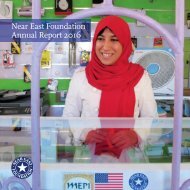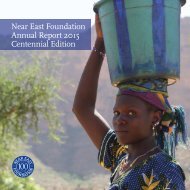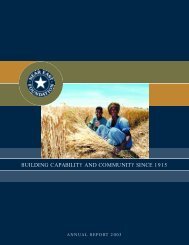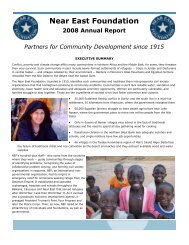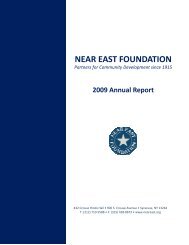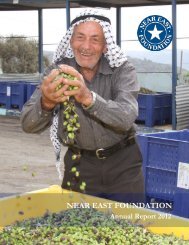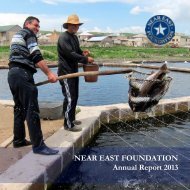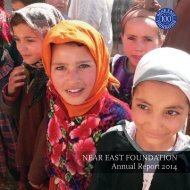2019 Impact Report_Digital
Our 2019 Impact Report highlights key milestones and features stories from our work across nine countries to improve livelihoods, climate resilience, access to water and sanitation, and stability.
Our 2019 Impact Report highlights key milestones and features stories from our work across nine countries to improve livelihoods, climate resilience, access to water and sanitation, and stability.
You also want an ePaper? Increase the reach of your titles
YUMPU automatically turns print PDFs into web optimized ePapers that Google loves.
CLIMATE RESILIENT DEVELOPMENT
Working hand-in-hand with local communities, we help
smallholder farmers and other natural resource-dependent
groups protect their livelihoods, maintain their food security,
and adapt their incomes in the face of climate shocks and
stresses. We work to build local capacities that ensure
communities have tools and resources to invest in climate
resilient strategies, to sustainably and peacefully manage
shared agricultural and natural resources, and to adapt and
diversify resource-dependent livelihoods.
852,591
individuals with
improved food security
658
infrastructure repairs
and upgrades
150
community-led
climate investments
202
partner organizations
with capacity built
In 2019, we joined the Global Resilience Partnership, a consortium of public and private organizations
working toward a resilient, sustainable and prosperous future for vulnerable people and places.
Spotlight: Decentralized Climate Funds
International sources of funding to combat climate change are increasingly available, but how does this money reach those
on the frontlines of the climate crisis? Often, funds are channeled to multilateral actors, centralized national authorities or
to non-governmental organizations rather than the local governments that hold primary authority over natural resource
management and adaptation. Decentralized climate funds, however, use existing governance systems to make funds
available to local communities, activating local planning committees to identify and prioritize investments in consultation
with community stakeholders.
Through the DFID-funded BRACED program, NEF and its partners worked with communities and governments to pilot
decentralized climate funds in Mali and Senegal. Working within existing governance frameworks, the project built local
capacities to manage climate adaptation funds and to invest in locally prioritized resilience projects in a transparent and
accountable manner.
11 12








